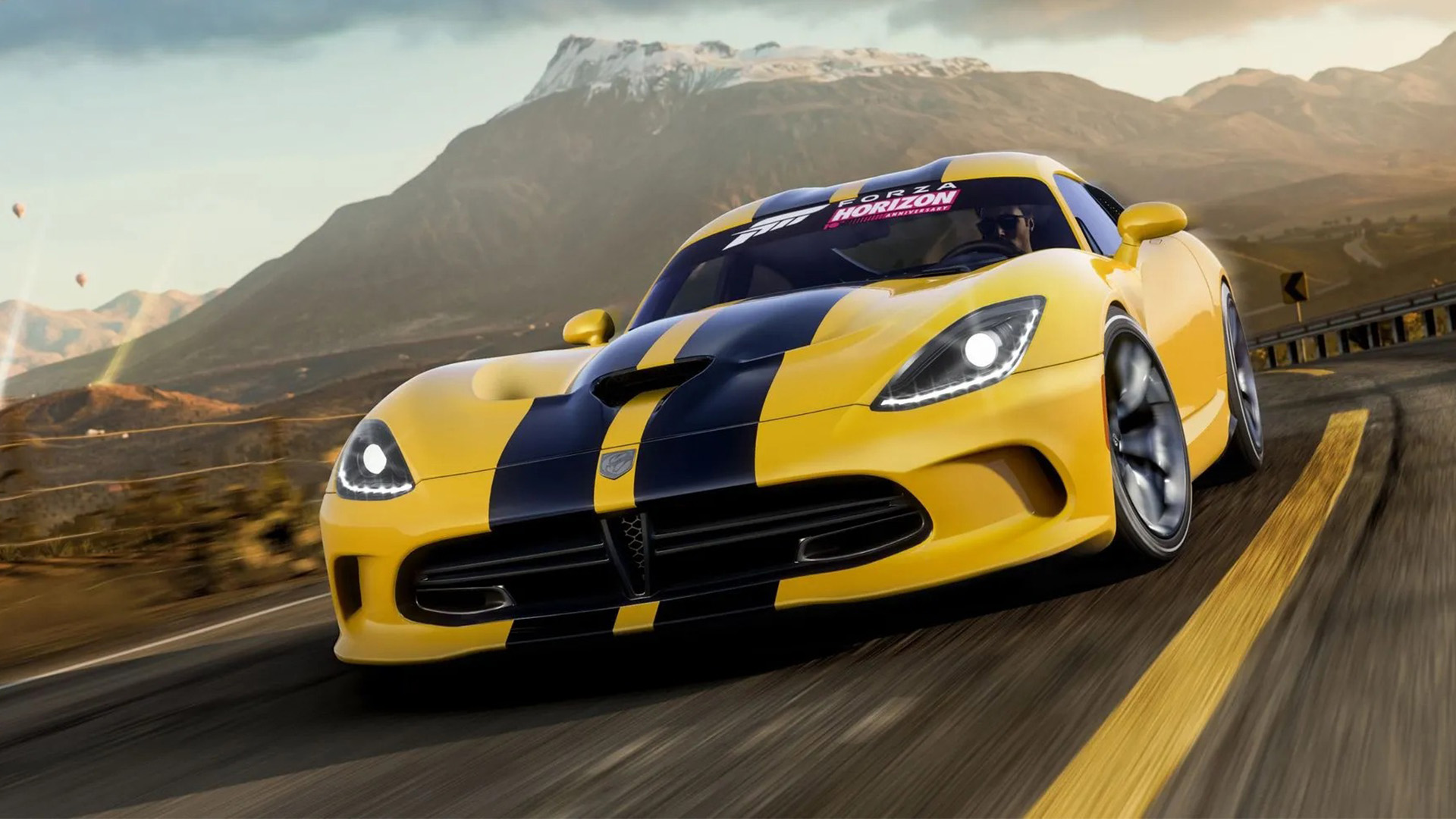

We may earn revenue from the products available on this page and participate in affiliate programs. Learn more ›
On this day 11 years ago, a new concept for a racing video game debuted—one that changed the course of the Forza franchise, of the genre, and of real-life car culture. It was the original Forza Horizon. While culture-defining works are rare and hard to pinpoint, Horizon, as well as the era it existed in, marked a clear inflection point in car history.
It wasn’t merely Horizon, but also the sense of enthusiasm surrounding cars at the time that’s key to this discussion. In 2012, a new guard was arriving. Drifting was going mainstream. YouTube channels like Hoonigan, Mighty Car Mods, /DRIVE, and Motor Trend were defining a new school of passion for cars. A more accessible era of car knowledge was afoot, and games had secured a firm foothold in car culture.




At the time, Forza Motorsport 4 and Gran Turismo 5 were locking horns, but Microsoft and Forza franchise developer Turn 10 Studios had another idea brewing. The team decided to split the brand into two releases: The circuit racing-focused Forza Motorsport series, and the fantastical, open-world, music festival-based Forza Horizon. It was controversial, mainly because it had never been done before. Taking simulator physics and assets and placing them in the context of an open-world racer was a new concept. It could’ve easily failed if it didn’t strike the right balance.
Instead of Turn 10 developing the game, a new British studio called Playground Games took charge using Turn 10’s basic parts. They were responsible for building a world and tweaking the physics, but more crucially were tasked with developing an experience that wasn’t like other open-world driving games of the time. The studio turned to music festivals for inspiration, rather than street racing or road rallies.



With that, Forza Horizon was born. The game centered around a fictitious Horizon festival in a virtual Colorado, a combined music and car festival where drivers from all over the country entered their builds to compete in closed-course street races. Along with the young, fun festival vibes, Playground Games carefully curated music and honed a vivid art style to make the game more vibrant and colorful than the Motorsport titles. The result was an experience with a visual identity that still holds up now, and a vibe that has inspired an entire generation of car enthusiasts. As the series continued, it exploded into a mainstream success.
Forza Horizon is now known by car enthusiasts everywhere. If there’s a group of supercars roaming the streets, most folks think of Horizon. It’s become a verb for Cool Car Shit Happening, even known by normal folks who aren’t that into cars but own an Xbox. Even the extremely popular Gridlife festival cites its inspiration as wanting to be Forza Horizon in real life, something that it arguably achieves.
The vision of Horizon was a fantasy, but it was an achievable fantasy. It wasn’t supercars and glamor like Test Drive Unlimited, and it wasn’t illegal running-from-the-cops street racing like Need for Speed. It was hitting up a festival with your crew, each in your own modded ride, while taking in music and seeing the sights. You could play multiplayer with your friends (I did, a lot), modify and paint cars to your liking, and explore the beautiful Colorado map endlessly.

And it reflected the popular consciousness at the time—of the irreverent car blogs, of the do-it-yourself-and-thrash-it-hard YouTubers, and of a new generation of young car enthusiasts activating the culture. The gameplay had a huge open-world sandbox full of different challenges, like speed traps and sponsored events that focused on specific skills like drifting and oncoming traffic, as well as secret rewards like discount signs and unicorn cars for dedicated explorers. Of course, you had to race to progress in-game too, but more than any other game of its genre, Forza Horizon was built for players to make their own fun.
It’s easy to forget how revolutionary and powerful that was. Forza Horizon wasn’t the thing that transformed car culture, but it both came from and re-informed the wave of the early 2010s. It was a reflection of the desires and hopes of enthusiasts back then, and it was a rare bullseye. Here’s to you, Forza Horizon.
Got a tip? Email tips@thedrive.com
